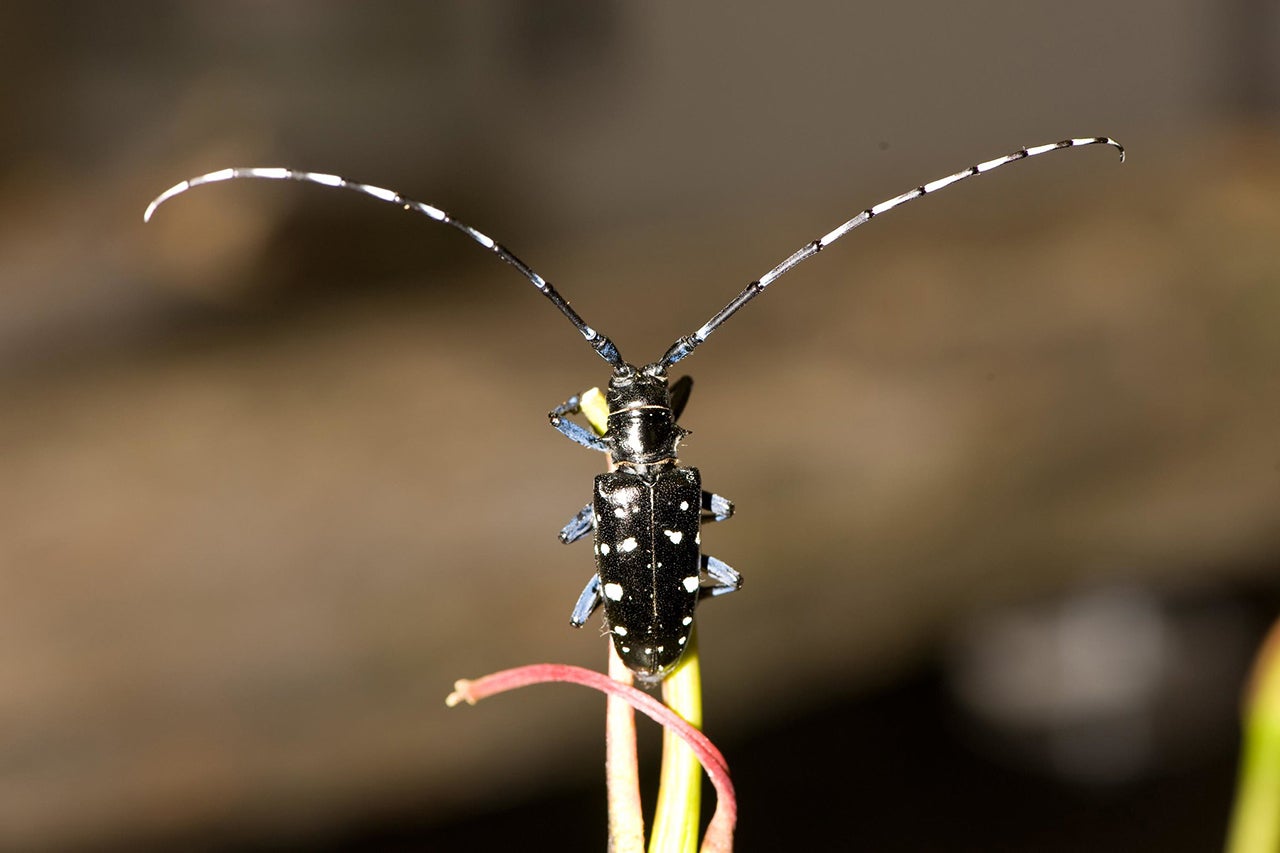When it comes to removal of a pest, collaboration is key. That’s why the College of Charleston and Clemson University have teamed up to fight the invasion of the Asian longhorned beetle (ALB).
In 2020, South Carolina became the fourth state with an active ALB infestation. At the nexus of the South Carolina incursion is Stono Preserve. Owned by the College of Charleston Foundation, the 981-acre tract of land in Hollywood, South Carolina, serves as a conservationist classroom for students.
Hailing from Korea and eastern China, Asian longhorned beetles love hardwood trees. As adults, they feed on the bark and twigs and chew a small notch in the bark to lay eggs. Once the eggs hatch, the larvae bore their way into the tree, feeding on the growing layer and the inside of the tree. This larval feeding ultimately kills the tree in as quickly as five years.
The good news is that the ALB can be eradicated. Already New Jersey and Illinois have eliminated the pest. The bad news is that it takes time and a lot of collaboration because there is no natural ALB predator in the U.S.
Since the ALB was identified in Hollywood two years ago, the U.S. Department of Agriculture (USDA), together with its collaborator, Clemson Regulatory Services, which protects the state from exotic and invasive species, has been hard at work surveying and taking steps to remove the beetle.
Having Stono Preserve as the eradication program staging area has given the crew a unique opportunity for uninterrupted access to the property and use of the College of Charleston’s laboratory on the premises to manage, mitigate and eradicate the ALB infestation.
“Our alliance with the College of Charleston Foundation and their generous granting of access to Stono Preserve early on meant that we could fight ALB more quickly and efficiently and minimize damage to the Charleston area and our state,” says Steve Cole, director of Clemson University Regulatory Services. “This was especially important as we faced challenges posed by the height of the COVID-19 pandemic. Formalizing this collaboration will help us continue the battle against ALB and contain its spread.”
Now CofC and Clemson plan to take their ALB relationship a step further. The two institutions have signed an agreement to share ALB-related data, improve access to Stono Preserve and develop academic collaborations.
“This situation has really allowed us to make lemonade out of lemons,” says David Coyle, assistant professor and state extension specialist at Clemson University who also serves as an affiliate within the College’s School of Sciences and Mathematics. “While finding ALB in Charleston County is incredibly unfortunate, the chance for collaborations between Clemson and CofC students and faculty is extremely beneficial. These universities are quite different, and this program has allowed people from both Clemson and CofC to consider things in a novel way. Since Clemson is so far from Charleston, the perspective of folks who are local to the area has been invaluable. Our research collaboration has also led to the creation of an ALB intern program, which will support CofC students to work on ALB-related projects. Scientific advancement is built on collaboration, and we’re fortunate to have that opportunity in this situation.”
“Stono Preserve provides an excellent stage for academic exploration,” adds Steve Kerrigan, chair of the College of Charleston Foundation. “The College of Charleston and Clemson are two outstanding universities whose academic partnership can be maximized for many research opportunities at Stono. This collaboration is a superb example of how philanthropic gifts and responsible stewardship further the mission of the College of Charleston.”
Already, CofC students and graduates are involved in the ALB project. Millar Elferdink, an Honors College biology major and chemistry minor, is an intern at Stono Preserve, and Sarah Wilkins ’20 is working on the project as a plant protection technician for USDA Animal and Plant Health Inspection Services.
“Our collaboration with Clemson serves as an example of how, together, we can take significant action to improve the education of our students and preserve the quality of life for the people of South Carolina,” says College of Charleston President Andrew T. Hsu.
The agreement between Clemson and CofC will be in effect for three years, when it can then be considered for renewal.






